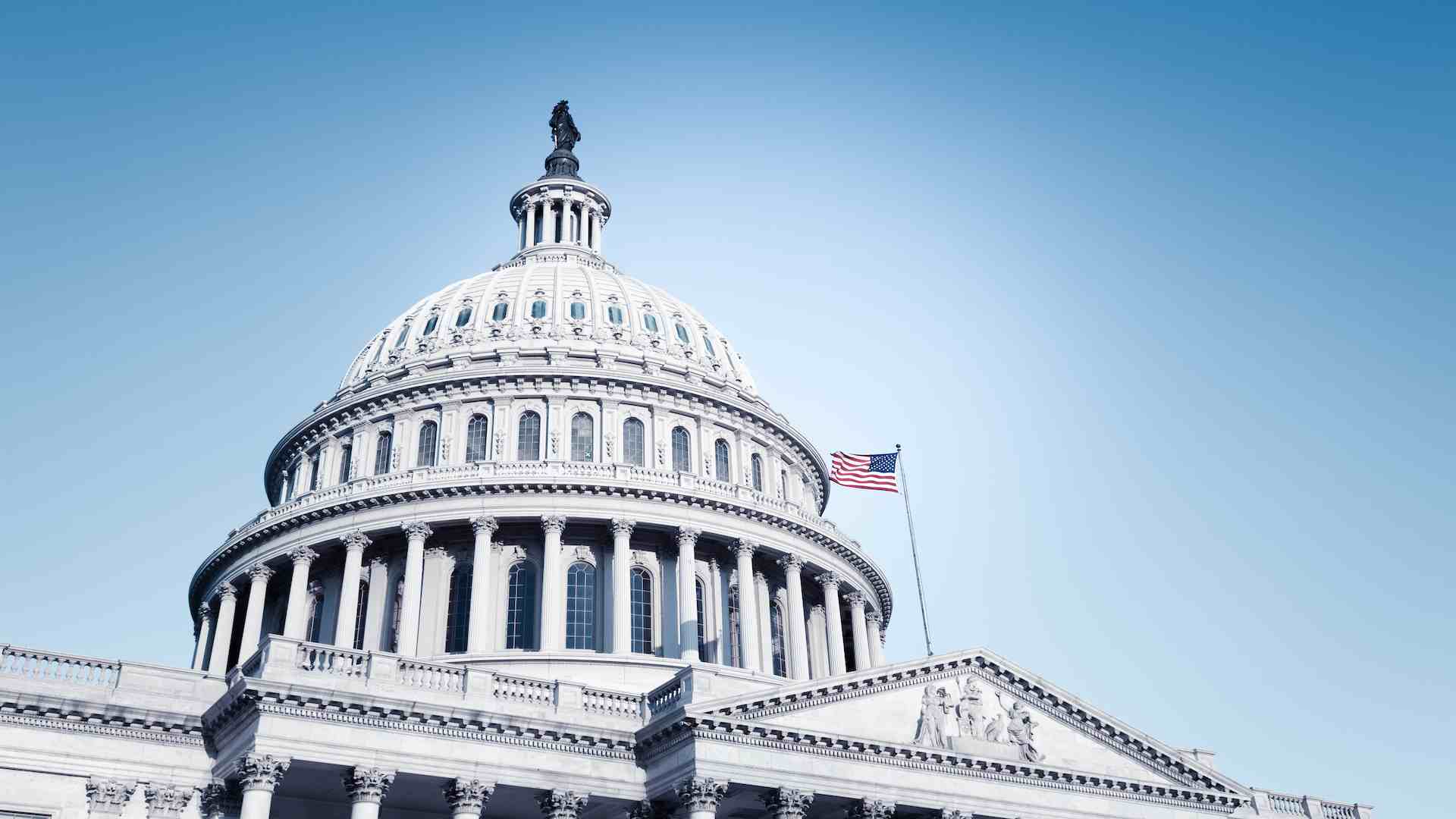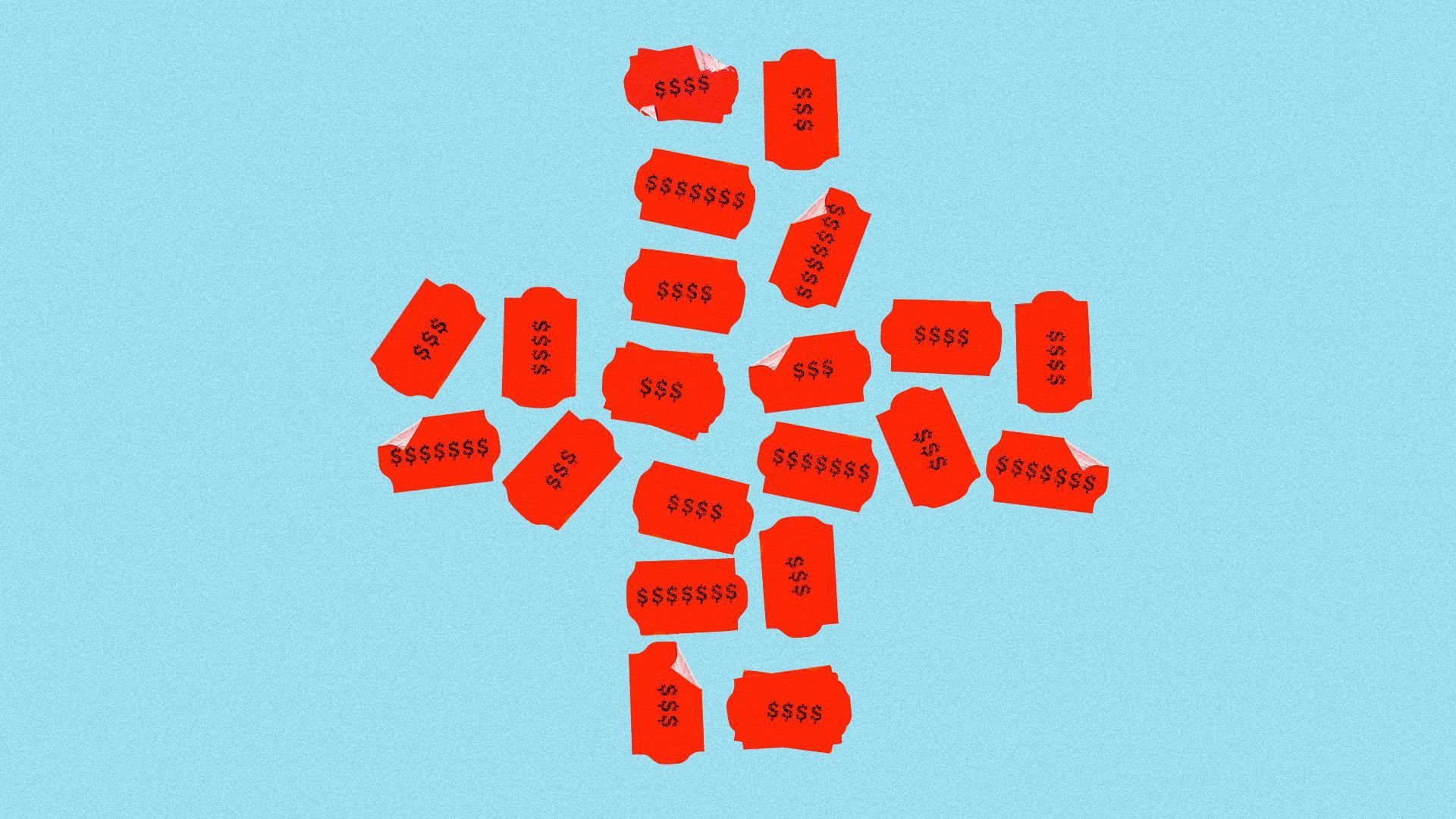| | | | | | | Presented By PhRMA | | | | Axios Vitals | | By Tina Reed · Aug 08, 2022 | | Welcome back from the weekend, Vitals readers. Today's newsletter is 1,057 words or a 4-minute read. One interesting thing: Rising temperatures from climate change could have a negative impact on children's health, making them less likely to engage in physical activity and more likely to suffer from heat-related problems such as dehydration or heat exhaustion, according to a review of more than 150 medical and scientific studies published in the journal Temperature. | | | | | | 1 big thing: Why generics oppose Dems' drug pricing bill |  | | | Illustration: Megan Robinson/Axios | | | | Generic drugmakers are warning that Democrats' plan to let Medicare negotiate the prices of drugs may undercut competition from lower-cost copycats, inject massive uncertainty into their market — and may forfeit potential long-term savings, Axios' Caitlin Owens writes. Why it matters: Experts say the concern about downstream effects on generics is valid and point to larger questions about whether the overriding focus on negotiating prices skews drug development over time. State of play: The Senate on Sunday passed, 51-50, a $740 billion tax, climate and health care package, making good on longstanding promises to lower the cost of prescription drugs. - The bill gives Medicare the ability to step in and negotiate the price of older drugs that still don't have any competition. The bill sets price ceilings for those drugs.
- That ends the status quo, under which drugmakers can enjoy monopoly prices for far longer than the exclusivity periods granted under the law — either while they wait for competition or while they block it through patent litigation.
Yes, but: The generic industry is warning that rather than removing brand manufacturers' incentive to stall competition, the bill will make it harder for competitors to gain entry and ultimately lead to higher prices over time. - Robust generic competition often lowers drug prices to a fraction of the brand drugs, driving the vast majority of demand to the cheaper alternative.
- "The bottom line is that it's competition that works," said Dan Leonard, CEO of the Association for Accessible Medicines. "At the end of the day there will be less competition if this legislation goes into effect."
Go deeper. |     | | | | | | 2. Senate Dems notch huge win but lose on insulin | | Senate Democrats on Sunday advanced arguably the most significant health care legislation since the signing of the Affordable Care Act more than a decade ago, Axios' Adriel Bettelheim writes. - But the massive victory didn't come before the chamber's Republicans blocked a $35 cap on out-of-pocket spending on for patients enrolled in private insurance.
- The Senate Parliamentarian determined the proposal violated the "Byrd Rule," which governs the provisions for what can be accepted in budget reconciliation legislation, writes Axios' Alayna Treene.
Democrats tried to attach an amendment including the insulin provision to the bill, but Republicans voted it down, with seven GOP senators — Bill Cassidy (R-La.), Susan Collins (R-Maine), Josh Hawley (R-Mo.), Cindy Hyde-Smith (R-Miss.), John Kennedy (R-La.), Lisa Murkowski (R-Alaska), and Dan Sullivan (R-Alaska) — voting with Democrats. Details: The vote injected a sour note into an otherwise resounding moment. The health portion of the bill allows the federal health secretary to negotiate the prices of certain expensive drugs for Medicare. What they're saying: "Facing the biggest crunch ever at the pharmacy counter, seniors scored the biggest win today. Everyone fed up with the high price of life-saving drugs can breathe a sigh of relief because relief is finally on the way," said Frederick Isasi, executive director of Families USA. - "Once the government can set prices for life-saving medicines, it will demand even more control over the health care of American patients and the collateral damage from this bill will only grow," said Pharmaceutical Research and Manufacturers of America CEO Stephen Ubl.
What's next: The package now moves to the House, where members will vote as early as Friday on advancing the bill to President Biden's desk. |     | | | | | | 3. Jump in jobs driven by health care | | Health care was among the leading contributors to last week's extraordinary jobs report, adding about 70,000 jobs in July. Why it matters: In sheer numbers, the sector has almost rebounded to pre-pandemic levels. The industry is just 0.5% below its February 2020 employment level. The big picture: Ambulatory services led the gains with about 47,000 jobs followed by 13,000 new jobs in hospitals. - There were 9,000 new jobs added in nursing and residential care facilities.
Be smart: Of course, the health care labor market is still roiling. Workers have shifted to travel positions or jobs with less front-line exposure, hospitals, ambulatory care and nursing home facilities have reported historic staffing shortages and labor costs are at all-time highs. - "Millennials continue to want goods and services, health care needs to rebuild after COVID dropped a bomb on it, child care and daycare need to rebuild," Robert Frick at Navy Federal Credit Union told Marketplace.
|     | | | | | | A message from PhRMA | | Congress' price-setting bill harms patients | | |  | | | | The bill lacks anything that could stop harmful practices by insurance companies and PBMs. Instead, Democrats are about to make a historic mistake that will devastate patients desperate for new treatments and cures. There is a better way to lower costs without risking new medicines. Learn how. | | | | | | 4. Inflation hikes delaying care for minorities: poll |  | | | Illustration: Aïda Amer/Axios | | | | Inflation is making it harder for Americans — particularly minorities — to afford timely medical care for serious illnesses, according to a new national poll. Why it matters: It's just one of the findings from the poll which found very real financial consequences of recent price increases, particularly on minorities. - The poll signals U.S. cities could be facing an uptick in hunger and homelessness in the next coming months if they don't prepare, said Robert Blendon, the co-director of the survey, told Axios.
"It's very striking," Blendon said. "We're in an inflationary period here and it's unusually broadly hitting minority communities even worse than everyone else." By the numbers: The poll from NPR, The Robert Wood Johnson Foundation, and the Harvard T.H. Chan School of Public Health was conducted on a nationally representative, probability-based sample of more than 4,000 adults. - Nearly 60% of Black and Latino households and about 70% of Native American households said recent price increases caused them serious financial problems. In comparison, 36% of Asian households and 44% of white households agreed.
- More than one in five Black adults (22%), 19% of Latino adults, 25% of Native American adults, 14% of Asian adults, and 16% of White adults say they are currently having serious problems affording medical care or prescription drug
Be smart: The deep racial disparities exposed during the first years of the COVID-19 don't appear to be improving in the latest phase of the pandemic — and could signal more trouble ahead. - "The gaps between Blacks and whites on getting care were the same," Blendon said.
Share this story. |     | | | | | | 5. While you were weekending |  | | | Illustration: Aïda Amer/Axios | | | | 👉 More women are self-managing their abortions through medication as states have increasingly restricted surgical abortion. That may come with additional risks, experts say. (New York Times) 💊 A jury ruled that a pharmacist who refused to fill her prescription for a morning-after pill based on his "beliefs" did not discriminate, but did award her $25,000 for the emotional harm caused. (Axios) 💰 CVS Health is reportedly seeking to buy Signify Health in a bid to to expand in home-health services. (WSJ) |     | | | | | | A message from PhRMA | | What's missing from Democrats' price-setting bill? | | |  | | | | Anything that could stop harmful insurance and PBM practices. Instead, Congress should: - Lower coinsurance for seniors in Part D.
- Address abusive insurance practices that block access to medicines.
- Require middlemen to share the savings directly with patients at the pharmacy.
Learn more. | | |  | | Why stop here? Let's go Pro. | | | | | | Axios thanks our partners for supporting our newsletters. If you're interested in advertising, learn more here.
Sponsorship has no influence on editorial content. Axios, 3100 Clarendon Blvd, Arlington VA 22201 | | | You received this email because you signed up for newsletters from Axios.
Change your preferences or unsubscribe here. | | | Was this email forwarded to you?
Sign up now to get Axios in your inbox. | | | | Follow Axios on social media:    | | | | | |
No comments:
Post a Comment